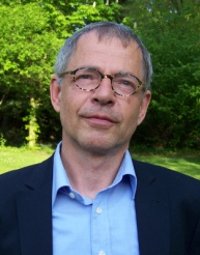
Institut für Ethnologie der Universität Göttingen
Berliner Str. 28
D - 37073 Göttingen
Tel.: +49 (0)551 / 39-20155
Fax: +49 (0)551 / 39-7359
Email: [email protected]
My university website.
My project as a poster.
Spirits in and of modernity
Pertinent observations in Vietnam coupled with a cursory comparison with other Asian countries (e.g. Taiwan, Thailand, the Philippines, Japan, South Korea and Sri Lanka) show that spirit discourses and rapid modernization processes frequently appear parallel to one another. Natural disasters, financial crises and war trauma foster spirit apparitions and their worship and manipulation. Yet spirit and ancestor cults cannot be reduced to their function as compensation for and moderation of conflicts caused by accelerated modernization. Spirits can also be found in the pop-cultural arena of entertainment. Appearing in TV series, popular movies or in comics, ghosts of horror and spirits of the deceased are omnipresent all over Southeast Asia. Indeed, such cultural products are not only consumed by members of the uneducated lower-class, but above all by the mobile upper-middle class, i.e. the carriers of economic change. Hence it is from the above observations that the “spirits in and of modernity” research project developed.
According to the hypothesis, the subject of ghosts and spirits is especially suited to analyze “alternative” or “multiple modernities.” The ubiquitousness of ghosts and spirits questions common assumptions about the place of religion in modernity. According to traditional modernization theories spirits and ghosts are definitely not synonymous with modernity and modernization, but rather with irrationality and pre-modernity. It is evident, however, that modernization efforts and technological progress in both western modernity (keyword: spiritualism) and Asian modernity were and are permeated by the presence of spirits. A further hypothesis claims that spirits of the deceased comment on the demands of modernity and act as agents of morality.
The “Spirits in and of modernity” project should provide insight into religion’s place in the era of globalization, while simultaneously clarifying what is meant by “secular modernity.” To do this, the context of economic modernity, secularization, and the revitalization of trance and spirit cults is brought to the foreground. A comparative analysis will incorporate the results of investigations on the boom of spirit cults in the urban centers of Hanoi, Singapore and in Thailand. To complement this analysis, research in media anthropology is conducted on the production of ghost movies and TV-series and their reception.
This project employs a comparative method in which Vietnamese case studies are complemented by research carried out in Thailand and Singapore. Field research on spirit cults and media analysis, especially audience research, will be given equal attention. This research project will be carried out in close collaboration with colleagues from Southeast Asia via workshops and conferences.
